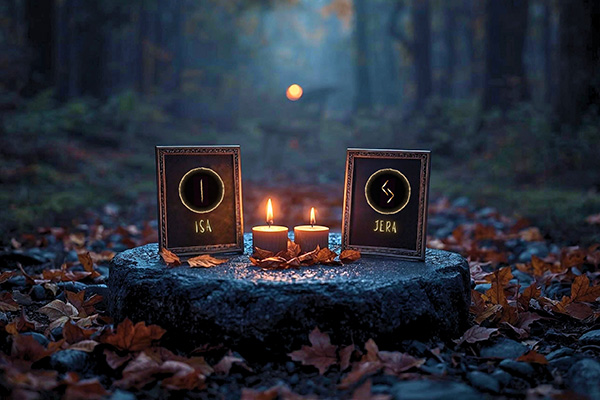spiritual traditions
My Magical Experience With Indian Palm Leaf Reading
 A few years ago, I had amazing experience with Indian palm leaf reading.
A few years ago, I had amazing experience with Indian palm leaf reading.
As a professional psychic and lifelong spiritual adventurer, I’m always eager to explore lesser-known forms of divination and ancient spiritual practices. Over the years, I’ve had the incredible opportunity to dive into a wide range of mystical traditions, some well-known, others more obscure. Each one has offered a unique and enlightening glimpse into the mystical and unseen.
It was that same sense of wonder and incurable curiosity that led me to explore the mysterious tradition of the Nadi Leaves. I’m so glad I did!
The Nadi Leaves, also known as Nadi Astrology or Palm Leaf Astrology, are ancient texts found primarily in South India, specifically in the state of Tamil Nadu. They are believed to contain the pre-written life stories and destinies of millions of individuals, inscribed thousands of years ago.
According to tradition, these prophetic records were created by the Saptarishis (Seven Sages) like Agastya, Bhrigu, and Vashistha, who used their yogic powers to foresee the past, present, and future of humanity. The Sages are said to have recorded these destinies out of compassion for future generations.
Originally, the Nadi Leaves were archived in Hindu temple libraries, especially in South India. These sacred texts were carefully preserved by temple priests, who regarded them as divine revelations. As the centuries passed and the original leaves began to decay, they were carefully recopied onto fresh palm leaves to ensure their survival.
Rediscovering Prayer As A Personal Practice
 “Prayer” can be a complicated concept for some people, especially when it carries associations with dogma or specific religious traditions.
“Prayer” can be a complicated concept for some people, especially when it carries associations with dogma or specific religious traditions.
On a spiritual path, not everyone relates to a higher power in the same way, and we all experience the sacred or the divine through diverse and deeply personal lenses.
However, no matter how we personally view it, prayer can hold a very meaningful place in any spiritual practice.
As my own spiritual awareness deepened, I came to see God not as a distant figure watching over the world, but as a vast creative presence, an energy that flows through all life. Some connect with this presence as “the universe,” others as their higher self, their guides, or a field of eternal love and light.
I have moved through many of these perspectives myself, and each has offered me unique insights. Over time, returning to the broader concept of God reopened a space of comfort and peace within me, especially through the practice of prayer.
When I was a child, prayer felt natural. It brought reassurance and warmth. Reconnecting with it later in life has brought that same sense of grounding and clarity.
Prayer can be understood as a conversation with God, Source, Spirit, the Divine, with one’s soul, or with the deeper wisdom that resides within and around us. Continue reading
Heal Your Life With The Great Law
 Do you have a lot of recurring drama in your life and the same negative situations repeating again and again? Do you keep attracting the same kind of toxic people and energy thieves into your life?
Do you have a lot of recurring drama in your life and the same negative situations repeating again and again? Do you keep attracting the same kind of toxic people and energy thieves into your life?
If so, you may benefit from learning more about the laws of karma and how to apply them in your everyday life, as these universal laws can transform your life for the better if we honor them in our spiritual practice and daily life.
Hindu and Buddhist spirituality recognizes 12 Laws of Karma. The first and most important of these is The Great Law, also known as the Law of Cause and Effect. This fundamental karmic law has helped me a lot to uncomplicate my own life since my spiritual awakening.
The Great Law teaches that whatever we sow, we shall reap. Every cause has an effect. Whatever put out into the world will eventually come back to us. Even the good and bad things we wish upon others will return to bless, or curse us.
Once we understand the role of The Great Law in our life, we become more aware of how we can eliminate negative patterns in our life and begin to attract more positive, new things.
The energy we emanate each day in the form of thoughts, wishes, fears, desires, attitudes, and beliefs will determine what will return to us as manifested experiences, events and circumstances.
Intention is everything in karmic law. For example, you start dating someone, but you live in fear of that person leaving you, or betraying you, so you are emanating an energy frequency of fear. In the end, it is very likely that you will lose that person. Fear attracts fear, love attracts love, and gratitude attracts gratitude. It’s that simple.
The History And Hidden Blessings Of Halloween

As a child, I remember getting excited about dressing up as a witch on Halloween and enjoying all the treats, like toffee apples and spooky cakes, that my mom used to make.
But one year, my father ruined the holiday for me when he explained his views on the significance of Halloween to me. I was just 10 years old, and it upset me.
Because of his religious beliefs, my father then forbade my siblings and me from celebrating Halloween. This made us feel excluded from our community as we watched other children dress up and enjoy themselves.
As an adult, I learned that it was not the event itself that was the issue, but rather the assumed F.E.A.R. behind it: False Evidence Appearing Real.
Remembering those times recently, I was prompted to take another look into the origin of this holiday tradition and what it truly stands for.
On 31st October each year, the Celtic pagan festival known as Samhain is celebrated, symbolizing the end of the harvest period and the start of the winter season, sometimes referred to as the “darker half” of the annual 12-month cycle.
Long before it became a night of costumes and candy, it was a sacred festival rooted in ancient spiritual tradition. The celebration we now know as Halloween traces its origins to Samhain (pronounced Sow-in), a Gaelic festival that marked the end of the harvest and the beginning of the dark half of the year.
Embracing The Dark Season With Isa And Jera
 This time of year, when the air first sharpens and the trees begin to release their golden leaves, I feel a familiar stirring in my heart and soul.
This time of year, when the air first sharpens and the trees begin to release their golden leaves, I feel a familiar stirring in my heart and soul.
Early fall has always been more than just a change of weather to me. It is a threshold, a sacred gateway that leads us from the brightness of summer into the deeper mystical wisdom of the dark season.
There’s a particular magic in this in-between time of the year…where light and shadow meet, and the veil between worlds begins to thin.
Fall is not merely an ending; it is an invitation inward. It asks us to reflect, to release, and to realign with the deeper currents that move through all things. Just as the trees surrender their leaves, we too are asked to let go of bad habits, limiting beliefs, or self-imposed burdens that no longer serve our highest path.
Our ancestors knew this well. They did not simply mark their calendars this time of year…to cover the pool or reorganize their closets, like we do. Instead, they were in deep sync with the rhythmic cycles of the year.
In the North, they honored the harvest with gratitude, they stored up sustenance for the long winter months ahead…and they carefully consulted the runes. The runes were for them living messages from the gods that spoke of fate, nature, and the mysteries of life.
As an spiritual advisor who works with the runes, I often remind my clients that these symbols are not relics of the past. They are very much alive, pulsing with energy, ready to guide us if we open ourselves to their voices.

